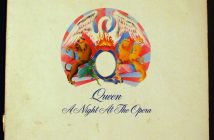Perhaps one of the best examples of unreliable narration in the twentieth-century, Nabokov’s iconic tale of a toxic relationship between a middle-aged man and young girl turns seventy today. Although time has certainly passed, the controversy surrounding the book remains.
The reader’s own manipulation is perhaps the reason why this novel has remained in classrooms and on university reading lists. Initially feeling sympathy for the protagonist, Humbert Humbert, is quickly followed by a feeling of disgust as you realise that you have been manipulated, as Lolita was. Nabokov’s writing style is mostly to blame for this; it is both beautiful and intricate, interweaving moments of lightness and even humour.
Although society has certainly changed a great deal since this novel was first published, in the US in 1958; themes from the novel are still very visible in today’s society. It is incredibly easy to blame the victim in the novel; Lolita is a twelve-year-old girl, yet receives copious amounts of criticism for appearing to reciprocate Humbert Humbert’s feelings. The victim blaming has gone so far as to associate the name ‘Lolita’ in popular culture with a young girl who is sexually advanced.
To further add to this controversy, two cinematic versions of Lolita have been released since the book was first published; one in 1962, and the other in 1997. Whilst some criticised the films, James Berandinelli suggested that, “Both Humbert and Lolita are eventually destroyed – what could be more moral?” Morality is perhaps one of the biggest themes in the novel, and the reason why it still remains near the top of a lot of popular book lists.
Regardless of these questions of morality, it is a testament to the penmanship of Vladamir Nabokov that seventy years on, society can read a disturbing book, discussing child abuse, and find themselves sympathising with the abuser.
A trailer for the 1997 film adaptation can be viewed below:




